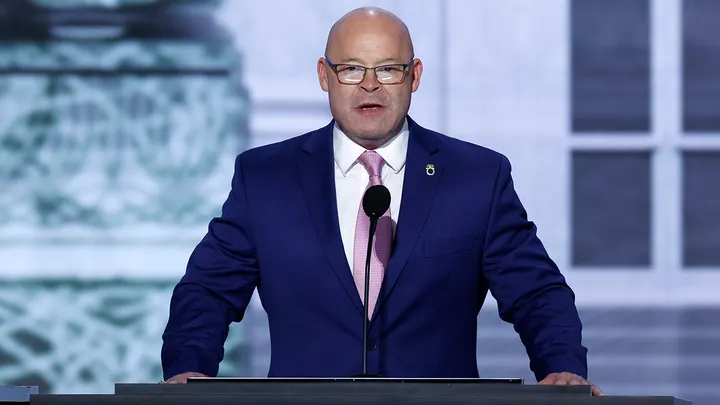As the 2024 presidential election approaches, the International Brotherhood of Teamsters, one of the country’s most influential labor unions, finds itself at a critical juncture. With President Biden out of the race, the Teamsters are now weighing their endorsement between former President Donald Trump and Vice President Kamala Harris. The decision is not only significant for the union, but also reflects broader tensions and dynamics within American labor politics.
The Endorsement Process
In a recent interview on CBS’s “Face the Nation,” Teamsters President Sean O’Brien highlighted the union’s endorsement process. O’Brien emphasized that the Teamsters are a “very, very Democratic union,” but their ultimate goal is to endorse the candidate who best represents labor interests. The union’s strategy includes meeting with each candidate to discuss labor-specific issues before making a final endorsement.

“Under our leadership, we have brought every single candidate to the table in front of our rank-and-file members and our general executive board,” O’Brien said. “We look forward to Vice President Harris committing to a meeting with us.” The union is looking forward to this meeting because it will provide an opportunity to address specific concerns and evaluate Harris’ stance on important labor issues.
Meeting with Trump: A ‘factual’ discussion
The Teamsters met with Donald Trump earlier this year. According to O’Brien, the meeting with Trump was “factual,” and the union presented its position clearly. Trump’s support for unions was discussed, but O’Brien was clear about historical issues that have caused friction between the former president and labor groups.
“He claimed he supports unions 100%,” O’Brien said. “But historically, we have had some issues with him.” This admission shows the complexity of labor’s relationship with Trump, who, despite his rhetoric, has a contentious history with unions.

The union’s relationship with the Democratic Party
The Teamsters have a long history with the Democratic Party, which is often seen as a reliable ally for labor. However, O’Brien’s appearance at the Republican National Convention earlier this year signaled a shift. The speech was generally well received by union members, with only a small percentage disapproving of it. The move was a major change from the norm, and it highlighted O’Brien’s willingness to consider all political avenues in pursuit of labor’s best interests.
Conversely, O’Brien was reportedly denied permission to speak at the Democratic National Convention, which may have further complicated the union’s relationship with the Democratic establishment. Despite this, the Teamsters’ support is not just about political loyalty, but about assessing which candidate offers the most support for labor.
The Way Forward
The Teamsters’ decision to withhold an endorsement until they meet Harris underscores their commitment to scrutinizing each candidate’s platform on labor issues. The union’s approach reflects a broader trend of labor organizations seeking more than just symbolic support from political candidates.

“Both sides come to us asking for support,” O’Brien remarked. “If the situation isn’t right for our members, they won’t get the free ride that they’ve received under our previous administration or anyone else.” This statement captures the essence of the Teamsters’ current stance—seeking concrete assurances rather than accepting promises blindly.
Broader Implications
The Teamsters’ endorsement will have a significant impact on the 2024 election. As one of the largest and most prominent labor unions, their support could influence both public opinion and political momentum. The union’s decision will likely influence other labor organizations and shape the broader narrative around labor issues in the election.
Moreover, the outcome of the Teamsters’ endorsement process could influence future relations between labor unions and political parties. With the union’s readiness to engage with both major parties, this election cycle could herald a shift in how labor groups interact with politicians and negotiate for support.
Teamsters holding off on presidential endorsement, wants Harris meeting first, union president sayshttps://t.co/fzW6YAazyB
— FOX Business (@FoxBusiness) September 2, 2024
Conclusion
As the 2024 presidential election approaches, the International Brotherhood of Teamsters is poised to make a decision that could reverberate throughout American labor politics. With President Biden out of the race and the choice narrowed to between Donald Trump and Kamala Harris, the Teamsters’ endorsement will be an important indicator of labor’s priorities and political strategies.
The union’s rigorous process, characterized by demands for meaningful engagement and detailed discussions on labor issues, highlights the evolving landscape of labor politics. Whether the Teamsters choose to support Trump, Harris, or another candidate, their decision undoubtedly reflects a strategic and measured approach to advocating for workers’ rights in a complex political environment.
